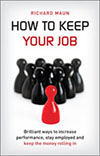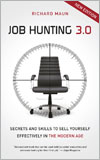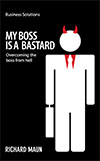better business blog
Tips and stories to add value to you and your organisation

How Well Do You Contract?
Hooray! I’ve just signed the contract with my publisher for a new book called Job Hunting 3.0 and now all I have to do is find the time and space to write 50,000 words to be delivered on 1st Feb 2010.
Although that may sound like a tough target, the publisher originally wanted 60,000 words by 1st Jan..! Given that November is racing by I must admit that my heart skipped a beat when I thought about that particular challenge, so I decided to go into what I like to think of as ‘contracting mode’. Transactional Analysis (TA) is often described as a ‘contracted psychotherapy’ and one thing that has been politely drummed in to me over the years is that contracting is key.
Without having a clear contract you run the risk of professional (and personal) disaster so it’s important to take time to do the contracting bit well. By contracting, I mean working through the goals, the ‘hows’, the admin points, the fears and the worries that need to be shared, discussed and sorted to make for successful agreements, whether written or verbal.
Mindful of this I rang the publisher and instead of simply trying to negotiate to a middle ground I asked him what his needs were, in order to find out his thinking. He wanted a book of 192 pages to hit the shops in May, or June, next year. Realising that 60k was a notional number of words and that in reailty the number of pages was more important we talked about what was realistic for 1st Feb, which is the deadline for a June publication date, and agreed upon 50k words as being a reasonable minimum.
He sent me a copy of their standard 14 page contract, I compared it to the one I had signed for my other books and inserted all the bits missing from his ‘boiler plate’ version and then we fine tuned the revisions. It’s worth noting that previously I had taken advice from the Society of Authors, who provide an excellent and free service to people like me trying to work out the details of a book contract, that is global in scope and lasts beyond my death in timescale.
My revised contract now gives me more free author copies, the right to audit the publisher’s accounts, a better split of royalties for translation rights, the right to be consulted over future editions and it acknowledges that the book is printed and sold at the publisher’s expense and risk (not mine). Added together, all these little changes mean that we both have a fair and mutually agreed contract. I feel much better that both of us shared our concerns and worked out a solution. A solution based on facts and not just a standard ‘go for the midde ground’ option.
The publisher is happy with the outcome, as he has secured a new title for next year, and I’m happy that I can deliver the manuscript on time.
Transactional Analysis (TA) has a great deal to say about contracting, notably the 3-Level Contract and 3-Cornered Contract models and we will come back to these in the future. For now though, the key things I’ve been reminded of by this story are:
- It does pay to take time and read documents.
- If I’m worried about part of the contract the time to mention it is before signing, when the parties can do something about it.
- Being worred is Ok. Staying silent isn’t.
How well do I contract? Most of the time; much better than I used to. This is because I have given myself permission to raise concerns, find out the facts and take the time to work through the details. This is a better way to solve contracting problems without always jumping to a default middle ground ‘compromise position’.
That’s me and I’m curious; how well do you contract? What could you do differently?
Tags: contracting, Society of Authors, tip, Transactional Analysis
e-publishing
Click icon for details


recent posts
browse archive
books
Click cover to view details on Amazon

How to Keep Your Job
Brilliant ways to increase performance, stay employed and keep the money rolling in
Published 2011 Marshall Cavendish
208pp

Job Hunting 3.0
Secrets and skills to sell yourself effectively in the Modern Age
Published 2010 Marshall Cavendish
260pp

 RSS
RSS



